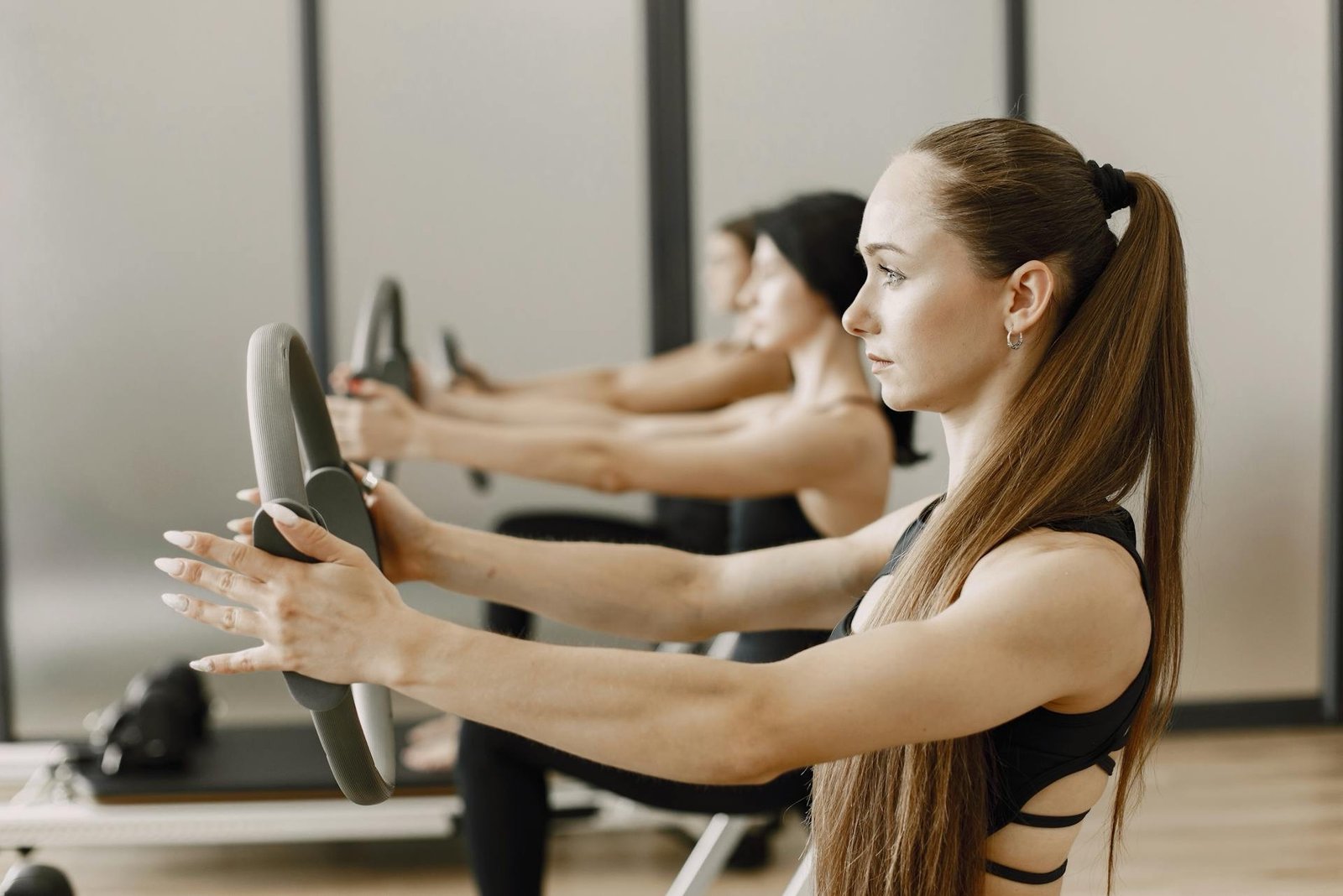5 Things Pilates is Good For
1. Core Strength
Core strength is a fundamental aspect of overall fitness, contributing significantly to functional fitness, stability, and posture. The core muscles, which include the abdominals, obliques, lower back, and hips, serve as the central powerhouse of the body. A strong core aids in efficient movement patterns and reduces the risk of injury by providing a solid foundation for the body. Pilates, a low-impact exercise regimen, is particularly effective in targeting and strengthening these essential muscles.
Pilates exercises are meticulously designed to engage the core muscles through controlled movements and precise breathing techniques. This method emphasizes quality over quantity, ensuring that each movement is executed with maximum effectiveness. The emphasis on core stability also translates to everyday activities, making movements more efficient and reducing the likelihood of strain or injury. In addition, a strong core supports the spine, alleviating pressure on the lower back and promoting a healthy, pain-free posture. The precision and control inherent in Pilates exercises ensure that each session effectively targets the core muscles, paving the way for a stronger, more resilient body.
2. Spine Health
Pilates is renowned for its effectiveness in enhancing spine health, making it a valuable practice for individuals seeking to improve their overall well-being. By focusing on controlled movements and proper form, Pilates exercises promote spinal alignment, flexibility, and strength. One of the primary benefits of Pilates is its ability to prevent and alleviate back pain, a common issue faced by many people today.
At the core of Pilates is the emphasis on maintaining a neutral spine, which is crucial for spinal health. This neutral alignment helps distribute weight evenly across the spine, reducing the risk of strain or injury. Pilates practitioners learn to engage their core muscles, including the deep abdominal and back muscles, to support and stabilize the spine during exercises. This engagement not only enhances spinal strength but also fosters better posture and alignment in everyday activities. Moreover, the controlled and deliberate movements characteristic of Pilates prevent unnecessary strain on the spine. Practitioners are taught to move with precision, avoiding abrupt or jerky motions that could potentially harm the back. This mindful approach to movement not only safeguards the spine but also enhances overall body awareness and coordination.
3. Flexibility
Flexibility plays a critical role in overall fitness, serving as a cornerstone for both injury prevention and enhanced performance in various physical activities. Pilates, with its comprehensive approach to stretching and muscle engagement, is particularly effective in promoting greater flexibility. By incorporating a variety of stretching exercises that target different muscle groups, Pilates helps to increase the range of motion and maintain optimal muscle elasticity.
The importance of flexibility extends beyond the Pilates mat. Enhanced flexibility aids in daily activities and contributes to better posture, reduced muscle tension, and overall physical well-being. It also plays a vital role in athletic performance, allowing for more efficient and powerful movements. Therefore, integrating Pilates into a fitness regimen not only improves flexibility but also supports long-term health and functional fitness.
4. Mental Health
Pilates extends its benefits beyond physical health by significantly contributing to mental well-being. One of the primary mental health benefits of Pilates is stress reduction. The controlled, deliberate movements performed during a Pilates session demand concentration, which can help divert focus away from daily stressors and anxieties. This mind-body connection fosters a meditative state, allowing individuals to achieve a calming and centering experience. This increased focus can translate into other areas of life, enhancing overall mental clarity and productivity.
Several studies support the positive impact of Pilates on mental well-being. For instance, research published in the Journal of Bodywork and Movement Therapies found that participants who engaged in regular Pilates sessions reported significant reductions in stress and anxiety levels. Additionally, testimonials from Pilates practitioners often highlight the mental clarity and emotional balance they experience as a result of their practice.
5. Low Impact Workout
Pilates is renowned for being a low-impact workout that is exceptionally gentle on the joints, making it an ideal exercise regimen for individuals across all age groups and fitness levels. Unlike high-impact activities that can strain the joints and exacerbate conditions such as arthritis, Pilates offers a more sustainable and safer alternative. This makes it particularly beneficial for individuals with joint issues or those recovering from injuries.
One of the key advantages of low-impact exercises like Pilates is the reduced risk of injury. The controlled, deliberate movements inherent in Pilates help to strengthen muscles and improve flexibility without placing undue stress on the skeletal system. This is especially valuable for older adults or those with pre-existing conditions that limit their capacity for more strenuous physical activity. Pilates exercises can be easily adapted to suit varying fitness levels, ensuring that everyone, from beginners to advanced practitioners, can partake in a safe and effective workout.

